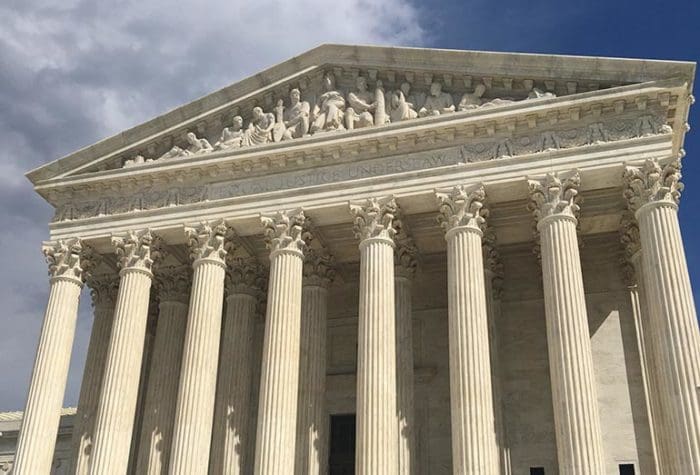In a decision handed down today, the Supreme Court upheld a South Dakota law that requires online retailers with no presence in the state to collect sales taxes.
In a 5-4 ruling, the court overturned a 1992 court precedent barring states from requiring businesses that have no physical presence in the state to collect their sales taxes.
Delivering the opinion of the court, Justice Anthony Kennedy said the physical presence rule in that former case, known as Quill Corp. v. North Dakota, is unsound and incorrect.
That’s bad for online retailers (who will eventually have to track, collect, report and remit sales taxes for 50 states) as well as consumers (because no one wants to pay a tax they didn’t have to until now). But gun owners could be particularly affected.
How? Let’s say you live in California. Or New York. And let’s also say that those states have unusually strict gun control laws, up to and including outlawing or requiring registration of some types of firearms. Oh, wait. They already do.
Anyway, it’s easy for those states to guesstimate the number of firearms that are subject to newly enacted registration laws. Laws at which gun owners have largely raised a defiant middle finger. So they have a general idea of the number of non-compliant gun owners in those states.
What if a Jerry Brown or an Andrew Cuomo — when they’re not building train lines no one will ever use or trying to figure out why no one wants to produce movies in Syracuse — decides they’ve had enough of this blatant non-compliance.
With the new requirement for retailers to collect and report on line sales taxes, states will have the right to audit retailers to ensure compliance. That means those states will be able to, say, take a look at Midway USA’s sales data for California and, while they’re doing that, take note of anyone who’s purchased Magpul AR furniture. Or New York’s busy bean counters could comb through Lucky Gunner’s books and see who’s purchased .223 ammunition.
Do you see where this is going?
It wouldn’t take a great intellect to then compare the names and addresses of those purchasers to their firearms registration records. With that information in hand, it’s not too big a leap to think that those names and addresses with no corresponding firearms registration information might get a knock at their doors some time in the not-too-distant future.
We’re living in interesting times.
h/t John Dingell III
